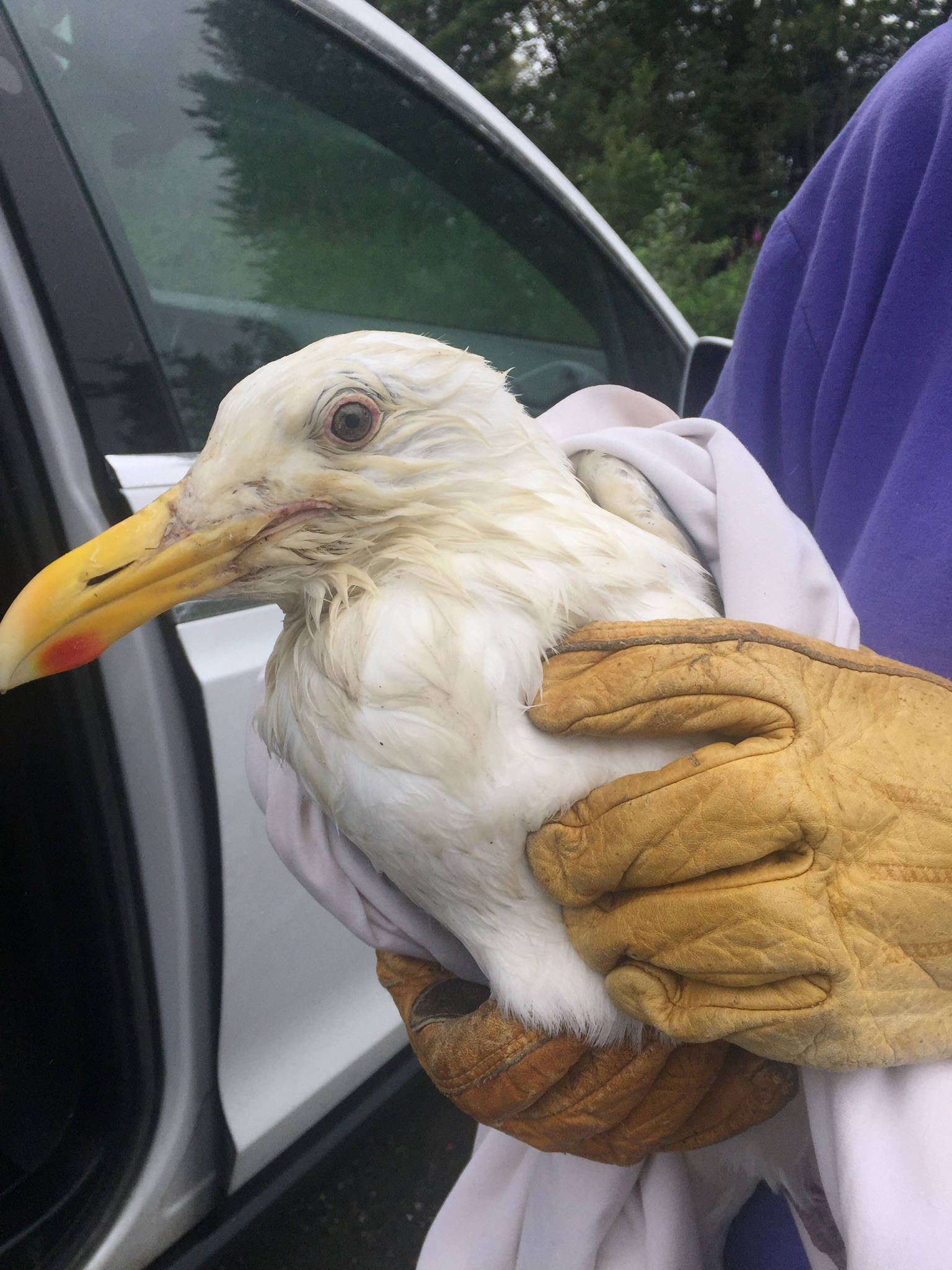A local bird rescue center is asking fishermen to be careful with their fishing gear after a seagull ingested a treble hook and died earlier this month.
On Aug. 12, a local jogger reported seeing a seagull wrapped in sport fishing line in the Salmon Creek area. That report was passed on to local bird rescue nonprofit Juneau Raptor Center, which is permitted to help birds in distress.
The bird had a bobber, a piece of fishing gear used to suspend bait at a predetermined depth, hanging from its mouth. The line wrapped around the bird’s wings prevented its flight. Later, JRC would discover a treble hook lodged in its throat.
“It could not walk or fly due to being entangled with the fish line,” said responding volunteer Pat Block.
Two people working close by took the bird from the jogger and passed it to Block and another volunteer.
“We put him in a kennel with water, over-nighted,” Block said.
The next day, JRC arranged to have the seagull flown to the Alaska Raptor Center in Sitka for care by veterinarian Dr. Victoria Vosburg, an accomplished bird vet.
But it was too late for the bird. Vosburg determined that euthanasia — having the bird put down — was the most humane course of action. Surgery to remove the hook would have caused more damage to the bird than it would help.
Typically, the scar tissue formed with surgeries like these would render the bird incapable of opening its throat wide enough to feed properly, Vosburg said. That means it would likely die by starvation.
To spare the bird that agony, they put it down, Vosburg told the Empire.
“The treble hook had punctured through the esophagus and the skin,” Vosburg said.
JRC helped 127 birds in 2017. Twenty-six of those animals were bald eagles, while 94 were non-raptor species.
The best thing to do when encountering a bird in distress, is to call JRC’s pager at 790-5254 and leave a phone number. Volunteers monitor the pager at all hours and generally respond right away, Block said.
Birds sometimes look like they’re in distress when they’re not, so it’s best to watch the bird for a few moments before making the call. Block recommended approaching the bird and pushing its “comfort zone” a bit before calling the number. It will fly away when you get too close. If it doesn’t, that could indicate an injury, illness or other issue.
• Contact reporter Kevin Gullufsen at 523-2228 and kgullufsen@juneauempire.com. Follow him on Twitter at @KevinGullufsen.

